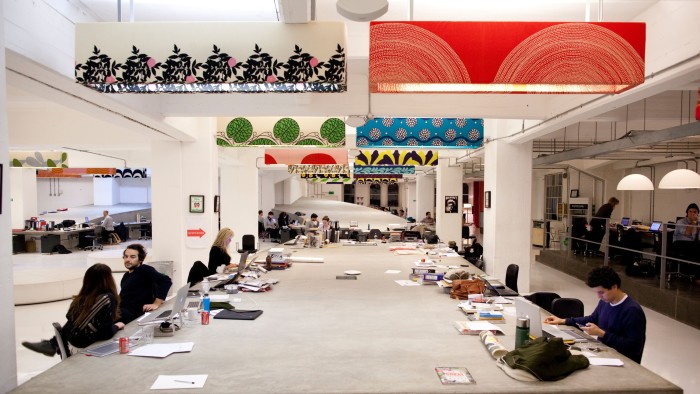Unlock the Editor’s Digest for free
Roula Khalaf, Editor of the FT, selects her favourite stories in this weekly newsletter.
Mother, the London advertising agency founded nearly 30 years ago, is a strange beast. In an industry where founders usually sell successful ventures to holding groups such as Publicis or WPP, it remains independent. A neon sign reading “Not for Sale” hangs in its Shoreditch head office.
Mother’s employees now feel even weirder. “We talk about being a safe haven in a zombie apocalypse,” says Katie Mackay-Sinclair, a global partner. The industry is being transformed by technology, with Google and Meta dominating digital ad revenues and AI invading the territory of agencies that create campaigns for large companies such as Unilever and Mars.
Mark Zuckerberg, Meta’s co-founder, spoke in a recent interview about AI generating so many ads for small companies in future that “you don’t need any creative”. Global ad groups have reacted to financial and industrial pressures by folding some famous creative brands together: WPP has integrated both J Walter Thompson and Young & Rubicam into VML.
This upheaval was on display last week at Cannes Lions, the industry’s “festival of creativity”, which is nominally devoted to giving awards to outstanding ad campaigns, but has been invaded by US technology and entertainment groups. Mother’s partners looked down on the parade from a rented villa in the hills above town.
The UK has a long history of creativity, with agencies such as Saatchi & Saatchi and Bartle Bogle Hegarty (both now part of Publicis). M&C Saatchi is a London-listed public company and the city is home to agencies including VCCP, which is owned by Providence Equity Partners and Uncommon Creative Studio, in which Havas took a majority stake two years ago.
The question is whether this legacy will be overwhelmed by automation or the spirit and humour of UK advertising — evident in Mother’s cult-like Believe in Chicken campaign for KFC — can survive. “Creatives in London are still a bit scrappy and there is an energy and grittiness here,” says Miranda Hipwell, chief executive of Adam & Eve DDB, owned by Omnicom.
The bear case for human creativity is easy to see. Generative AI platforms such as Adobe Firefly, and WPP Open, which the group has built for its agencies and clients, can produce images instantly from written prompts. Agencies are making AI models for large companies that can generate new ads based on the tone of voice and style of their catalogue.
This threatens to substitute for human effort and affects the industry’s model of hourly billing for work. “Time is being compressed,” says one executive. Even if AI models are simply used to generate lots of rough ideas that are used for inspiration and developed into sophisticated campaigns, clients will not want to pay as much.
There are sound reasons why agencies have consolidated, combining skills from creativity to customer experience. Advertising not only has to span many forms of media but large agencies are involved in ensuring that customers can, for example, order products easily through mobile phone ads. A greater share of marketing has become about execution, not brilliance.
But economies of scale remain less obvious for creative agencies than for media agencies, which oversee marketing for large companies. By definition, AI models can only spit out ads based on everything that has gone before, while companies hire top agencies to invent something new. It not only has to be original, but sufficiently arresting to cut through the noise.
As more agencies are amalgamated into bigger, broader organisations, rarity increases the value of independent ones. It also makes them attractive places to work for natural rebels. Mackay-Sinclair calls Mother’s philosophy “do the best work we can, have fun and make a living . . . in that order”. Other agencies are more lucrative, but it offers creative autonomy.
There is still a global role for London agencies. Felix Richter, Mother’s chief creative officer, argues that “America has the innovation but Europe has the craft: the attention to detail and nuance that makes something really original.” Mother has offices in New York, Los Angeles, Shanghai and Berlin, while VCCP has five international offices including New York.
It feels improbable that the point of Cannes Lions will be destroyed by Zuckerberg. Although some old names are disappearing in the apocalypse, others will take their place.
